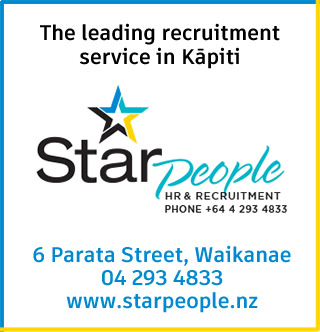Ratepayers will foot the bill if water metering doesn’t go according to plan and the Kāpiti Coast District Council’s estimate for reductions in water use from metering is based on weak evidence, says the Kāpiti Water Action Group (KWAG).
“If estimated reductions aren’t met, ratepayers could end up footing the bill for both the installation, and on-going costs of meters and billing, and still have to pay for further work to increase supply,” says KWAG spokesperson Sam Buchanan.
The council says the estimate of a 25% reduction in peak water use is derived from a report1 on water use in Tauranga. Water meters were installed in Tauranga in 2001 and peak water use dropped from 657 litres per person per day in the 2000-01 year to 486 litres per person per day two years later, a drop of approximately 25%.
“Its poor methodology to calculate a percentage reduction from a single pair of figures, especially when the 2000-01 year looks like an unusual year for water use the ratio of summer to winter use is the highest in the 14 years the report covers,” says Mr Buchanan.
“The figures the council used look like they’ve been cherry-picked to show a big reduction in water use. Tauranga is a high water use area, and it’s obviously easier to cut water use if it’s already high due to water being used unnecessarily. Despite the metering and user-pays charges, Tauranga’s water use is still considerably higher than the 400 litre per person per day peak use target the Kāpiti council requires,” says Mr Buchanan.
“The report gives the peak water use in Tauranga in the 2004-05 year as 518 litres per person per day. At no time since metering did peak water use come below the 400 litres per person per day the Kāpiti Coast District Council is planning for.”
“If the 25% reduction target isn’t met, ratepayers could end up paying twice. On top of the $8 million for installing meters, and the $450,000 a year the council estimates billing, reading and maintaining the meters will cost, we’ll have to fork out for the river recharge scheme or other method of increasing water supply.”
“Average water use in Tauranga was declining even before metering was introduced. There was a steady reduction in water use between 1998 and 2004. It’s difficult to detect any particular effect of metering,” says Mr Buchanan.






















